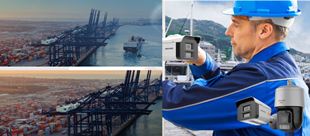Latvia, Lithuania and Estonia increased spending on new defence equipment from $210 million in 2014 to $390 million in 2016. Together by 2018, those three countries are expected to spend around $670 million a year on new equipment.
“The profile of defence spending in the Baltics has changed dramatically in the past two years,” said Craig Caffrey, principal analyst at IHS Jane’s. “Their defence budgets will all be over 2 percent of GDP by 2018, and each country will have doubled or tripled their budgets from 10 years ago. In 2005, the region’s total defence budget was $930 million. By 2020, the region’s defence budget will be $2.1 billion. This growth is faster than any other region globally.”
Latvia and Lithuania have been the two fastest growing defence budgets in the world since 2014, according to IHS Jane’s analysis. The high rates of growth will be sustained until 2018.
“The increase in defence spending in the Baltics is largely linked to the growing confrontation between Russia and the West, often described as the ‘new Cold War,’” said Alex Kokcharov, principal analyst at IHS Country Risk. “We have seen political confrontation between Russia and the West in the past two and a half years escalate to military assertiveness and we don’t see this ending anytime soon.”
“Military exercises carried out by Russia and NATO have increased in frequency, as have various aviation and marine incidents in the Baltic and Black Seas,” Kokcharov said. “Russia very much views these areas as its immediate frontier.”
“While we do not expect Russia to become involved in a conventional interstate war with the West, including NATO member states, it is likely that the confrontation will continue for a number of years,” Kokcharov said. “This confrontation will likely include elements of military intimidation, making immediate Russian neighbours concerned.”















